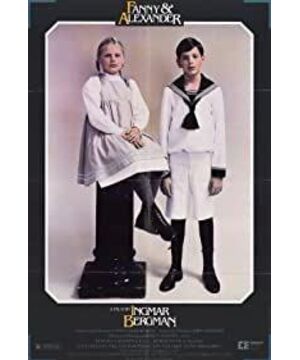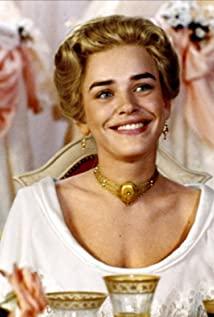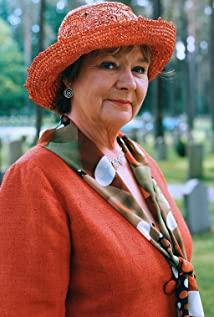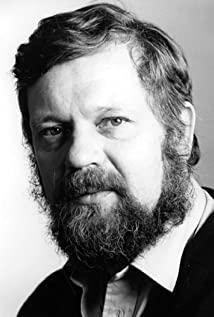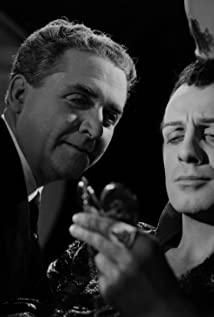"Fanny and Alexander" is undoubtedly the most famous Swedish and one of the greatest film directors, Ingmar Bergman, presenting another magnificent masterpiece full of Swedish aesthetics and philosophy of life to the world. "Fanny and Alexander" borrows the life and death, spirit and flesh, control and struggle experienced by the three generations of the Aktan family under the framework of full of illusion and reality conflicts, life and drama, and analyzes the inner world of people, both to get rid of The positive part of finding a way out of the inner crisis, there is also the futile truth that it is difficult for a person to subvert the life and death arrangements, full of the label of Ingmar Bergman.
[Surface truth]
The film begins on Christmas Eve in 1907. Nordic traditional classical poetic red brick exterior buildings, artificially lit street lamps on both sides of the snow-covered stone brick street, horse-drawn carriages galloping past...dark red curtains, light green patterned wallpaper and curtains, flashing crystal lamps, golden Photo frames, gorgeous tablecloths, green plants... the interior and exterior scenes, furnishings, makeup, and clothes full of Swedish classical charm at the beginning of the 20th century are breathtakingly restored. The well-dressed Aktan family has a splendid, luxurious, singing and dancing scene. However, under the appearance of prosperity, there are undercurrents surging, hidden sadness, depravity, withering, fragility, and the fact that life is not glamorous.
1. Sad Helen
The mother of three sons, as the head of the grandmother's family, has always been widowed to make her heart sad and depressed, but she has to be calm, energetic, elegant, and in control of everything. Only when she was alone with the old Jewish businessman Isaac Jacobi, she could confide in her heart: "Speaking of being sad now, I need to calm myself with brandy. I only feel happy and beautiful when I remember the past. I want to wash my face, Re-make up, do my hairstyle, put on my bra and silk skirt, and transform from a sloppy and crying woman into a calm grandmother."
2. Fallen Gustave
This very business-minded son, in the eyes of his mother Helen, is too indulgent in his private life. His family harmony is due to his wife Alma's generosity and tolerance. Even on Christmas Eve, he did not shy away from having an affair with the maid Maggie, and vowed to set up a letter to make Maggie the hostess of his coffee shop. Life is unpredictable, people cannot escape fate, and having fun in time is his attitude to life.
3. Defeated Carlson
Because he and his wife could not afford charcoal, he and his wife had to put up with the cold room that was useless to make a fire. In order to let this difficult son learn to take responsibility, his mother Helen refused to help him repeatedly. The underground bank's high interest rates, insomnia, poverty, and shame surround Carlson. He will vent his anger at his unsatisfactory life to his wife. He blames her for not speaking Swedish, for her smell, wet lips, and humility. He complained about the impermanence of the world, "The once rich prince was deposed in an instant."
4. Fragile Oscar
Oscar inherited the management of the theater from his father. He worked hard to manage the glory of the Aktan family. He also loves drama deeply. His parents' talent for drama seems to be injected into him. He seems to be loyal to the world of drama, including his wife, the famous actor Emily. "Sometimes this small world can mirror the big world, making people temporarily forget the difficult big world." However, excessive fatigue made Oscar's body go from bad to worse. "He is too tired and exhausted. He needs a rest." Mother Helen felt sorry for her most beloved son.
【Drama Life】
Director Ingmar Bergman is good at exploring the human soul by making movies about his own life experience, which has made him an immeasurable achievement in the world's film and television circles. He never shy away from his fear of death. Many of his films involve elements of death and ghosts. He said in an interview that this is a way to eliminate his fear of death. And I think "Fanny and Alexander" is the one he most tempted to design among the many films. Under the foundation of the Aktan Family Theatre, Bergman chose to interweave Shakespeare's tragedy "Hamlet" with the fate of the film's protagonist, Alexander (Oscar's son). The plot of the film jumps in the mode of the drama, attributing Alexander's unacceptance of his father's death and fear of death to the fateful implication after repeated comparisons between the drama and reality.
Rehearsing "Hamlet" Oscar suddenly fell ill and died. Alexander witnessed this scene, and his mind was still full of drama. "The King of Denmark returns to his soul after being murdered. Prince Hamlet is trapped in a conspiracy and dangerous world and embarks on a tragedy of revenge for his father." Throughout the funeral process, Alexander was unable to formally his bloodless dead father. He worried about Hamlet's fate, especially after seeing the ghost of his father at the piano and the close conversation between his mother and Bishop Edward at the funeral.
Alexander's hunch was correct, and his mother Emily soon remarried Bishop Edward. In Alexander's opinion, this is the same plot as Hamlet's mother married to Hamlet's uncle (who killed his father). At the house of stepfather Edward, Alexander and Fanny met for the first time the stepfather Edward's mother Brenda, younger sister Henrietta, seriously ill Aunt Elsa, and servants. The bishop's sister set a strict code of conduct for Alexander and Fanny. The bishop's behavior towards Alexander and Fanny is even more interfering, with a cold attitude. Alexander and Fanny complained to their mother Emily. Emily said to Alexander: "Son don't play Hamlet, I am not Queen Gertrude, and your good stepfather is not the King of Denmark."
And in the old house of Bishop Edward, the maid Justina mentioned the pro-hostess and her two daughters drowned in the river outside the old house when he brought dinner to Alexander and Fanny. From then on, the old house Things that are no longer quiet. Alexander's next words shocked the maid even more. The maid, Justina, reported to the bishop that Alexander had fabricated the lie of "meeting the ghost of the bishop's first wife, and listening to her tell the story of the whole process of drowning her and her child accidentally while escaping from imprisonment". It turns out that Justin was the spy that the bishop arranged to monitor the children, which is also very similar to the sinister way of the Danish king in "Hamlet".
The angry bishop interrogated Alexander while Emily was out. Under the threat of the bishop with sticks, castor oil, and a small black house, Alexander admitted to fabricating a lie and chose ten sticks as punishment, but he still stubbornly refused to apologize. This further angered the bishop and exposed his hypocrisy and brutal nature. He beat Alexander until he succumbed and claimed that such punishment was the truth that allowed Alexander to learn to love things. Alexander had no choice but to apologize in a wrong way. Fanny witnessed all this, no longer had any illusions about the bishop, only anger and hostility. And the bishop's excessive performance, just like the fear of the Danish king when he saw the performance of poisoning the old king in "Hamlet", betrayed his true identity.
At the same time, another ghost in Helen's house appeared. Helen, who woke up from a drowsiness, saw the ghost of her late son Oscar sitting opposite her. She took her son's hand and talked about her longing for him and her tiredness and lack of interest in life. Suddenly, grandmother Helen realized that the appearance of the late son Oscar seemed to need to do something by herself... Soon, Emily's arrival confirmed Helen's guess. Emily cried to her former mother-in-law and wanted to divorce the bishop, but the bishop told her that her behavior would be abandoned in court, and the children would have the help and pain of the bishop's raising. Emily, who is already pregnant, hates Bishop Edward, but is isolated and helpless. And Helen has already begun brewing a plan to save Emily and the children.
【Freedom of Control】
Emily, who returned to Edward's house, saw the bruised and bruised Alexander in the attic and was heartbroken. She could no longer be weak. She was determined to save herself and her children. She wanted to fight back wisely and forcefully. At this point, the plot began to separate from the intertwined "Hamlet", and began the film's plot to resist control and fight for freedom.
1. Personal freedom
Helen’s old Jewish businessman, Jacobi, came to the bishop’s house to discuss a deal that the bishop had mentioned before. This so-called transaction is nothing more than the bishop's use of power to squeeze the coat of the Jewish businessman Jacobi-selling a worthless box to Jacobi at a high price to avoid the rule that the clergy cannot borrow money from the Jewish businessman. Jacobi took the opportunity to hide Alexander and Fanny, who were trapped in the children's room, in a box. The cunning bishop guessed that there was something wrong with this cheap bargain, so he rushed into the children's room, only to see the two "children" asleep. Emily asked the bishop not to disturb the children, and the bishop was relieved. It turns out that Jacobi and Emily had long discussed to put the puppets in children's clothes and put them in the children's room to deceive the bishop's inspection.
Bishop Edward tried to save Emily's heart with soft words, and Emily dealt with it coldly. When the bishop saw Emily drinking the broth, he wanted to drink it too. He didn't know that Emily put in the broth the trance-causing medicine that the bishop had given to her sick aunt Elsa. Emily confessed to him that she would return to the child and never return. The bishop can no longer disguise his self-described image of "smart, open-minded, and fair". He said evilly: "I will ruin your life, I will hunt you everywhere, and I will ruin your child's future.
"But reality can no longer give the bishop a chance. The drugged aunt Elsa overthrew the paraffin lamp on the bedside table. The flame ignited her hair, sheets and nightgown, and the burning Beggis ran to the bishop. In his bedroom, he fell on the bishop, and died with the devil who had been using drugs to control him. In a sense, it is not only Emily and the children who get personal freedom, but also Elsa.
2. Soul freedom
Alexander and Fanny smoothly left the bishop's house and temporarily stayed in the chandelier shop in Jacoby. Jacobi introduced Alexander and Fanny to his little nephew, Allen, and another nephew, Ismail, who was ill and locked in the room. Although the identity of Ismail is not clear in the play, she is a witch from the perspective and interpretation of the soul, as well as her ability to control the thoughts of others. A person who is said to be a "crazy person who will pinch everyone with his hand and chop everyone's hand" is dangerous. However, what she did to Alexander was not dangerous and crazy. On the contrary, she was helping this child whose soul was imprisoned by fear and insecurity to seek an exit. "Forget yourself, I will be with you, I am your guardian angel."
3. Freedom of choice
Gustav’s mistress, the maid Maggie, decided to move to the millinery shop opened by Mariana Eagleman in Stockholm to help. Because she was fed up with being told and arranged what to do in this home. Although Maggie is sorry for refusing Gustave Adolf Ectan's kindness to let herself run the coffee shop, she wants to live her own life and decide the life of herself and her children.
Emily, who returned to Helen's house, inherited the theater in accordance with her ex-husband Oscar's last wish. She enthusiastically asked Helen to read the new script written by August Strindberg, which included the roles of Helen and Emily. Two women who have gone through hardships and become strong and independent smiled arm in arm, "Now, it is up to us to decide, right." The women of the Helen family gained the freedom of choice in life.
In addition, Alexander, who returned to his grandmother Helen’s house, felt a lot of inner relaxation, but he occasionally encountered ghosts. For example, the ghost of Bishop Edward pushed him when he was not prepared, and said coldly to him, "You can’t escape. Dropped". Such an arrangement can be guessed as, in the eyes of director Bergman, complete soul freedom is extremely difficult to achieve. But when Alexander felt scared, he no longer chose to deny his emotions. He asked for help, such as lying on his grandmother’s lap and listening to her reading the script... "Everything can happen, time and space do not exist, and in reality is fragile. Under the framework, the image weaves a new image."
PS In this film, many roles can be found in the director’s life experience, Alexander-the father of fear of death, making up talent, and the godfather's work, Oscar-theatrical director, selfless work regardless of health, Gustav-affectionate, Accept destiny... In short, if you are interested in this mysterious and great director who is entangled in the soul and existence, it is better to read his work than to read his autobiography (wrote his autobiography continuously, but was accused of being untrue by his relatives).
View more about Fanny and Alexander reviews


